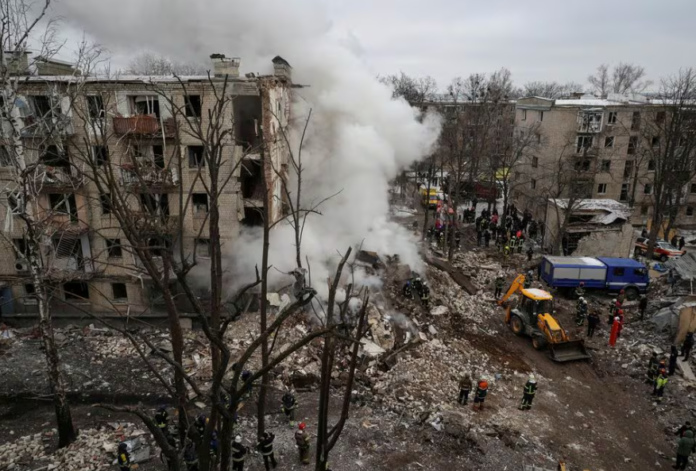The Kremlin on Monday said a call by Pope Francis for talks to end the Ukraine war was “quite understandable,” but NATO‘s boss said now was not the time to talk about surrender, according to Reuters.
Ukraine’s Foreign Ministry summoned the Vatican ambassador, known as the papal nuncio, to express its “disappointment” with Francis’ comments in an interview recorded last month that Ukraine should have “the courage of the white flag” to negotiate an end to the conflict.
The ministry said the pope’s comments “legalize the right of might and encourage further disregard for the norms of international law.”
In an attempt to defuse the situation and clarify Francis’ remarks, his second in command at the Vatican said in a newspaper interview on Tuesday that the first condition for any negotiations is that Russia should halt its aggression.
As the West grapples with how to support Ukraine and the prospect of a sharp change in US policy if Donald Trump wins November’s presidential election, Putin has essentially offered to freeze the battlefield along its current front lines, a premise Ukraine rejects.
“It is quite understandable that he (the pope) spoke in favour of negotiations,” Kremlin spokesman Dmitry Peskov told reporters.
He said President Vladimir Putin had repeatedly said Russia was open to peace talks.
“Unfortunately, both the statements of the pope and the repeated statements of other parties, including ours, have recently received absolutely harsh refusals,” Peskov said.
Russia says it sent its troops into Ukraine in February 2022 in a “special military operation” to ensure its own security. Kyiv and the West decry it as a colonial-style war of conquest.
Moscow’s offers to negotiate have invariably been predicated on Kyiv giving up the territory that Moscow has seized and declared part of Russia – more than a sixth of Ukraine.
Peskov said Western hopes of inflicting a “strategic defeat” on Russia were “the deepest misconception”, adding: “The course of events, primarily on the battlefield, is the clearest evidence of this.”
But NATO Secretary General Jens Stoltenberg said negotiations that would preserve Ukraine as a sovereign and independent nation would only come when Putin realised that he would not win on the battlefield.
“If we want a negotiated, peaceful, lasting solution, the way to get there is to provide military support to Ukraine,” he told Reuters at NATO headquarters in Brussels.
Asked if this meant now was not the time to talk about a white flag, he said: “It’s not the time to talk about surrender by the Ukrainians. That will be a tragedy for the Ukrainians.”
He added: “It will also be dangerous for all of us. Because then the lesson learned in Moscow is that when they use military force, when they kill thousands of people, when they invade another country, they get what they want.”
Ukraine’s Foreign Ministry said the nuncio, Archbishop Visvaldas Kulbokas, had been told the pope “would be expected to send signals to the world community about the need to immediately join forces to ensure the victory of good over evil.”
Ukraine wanted peace, it said, but one that was fair and based on UN principles and Ukrainian President Volodymyr Zelenskyy’s peace plan.
Zelenskyy said on Sunday the pontiff was engaging in “virtual mediation” and his foreign minister said Kyiv would never capitulate.
Zelenskyy, who signed a decree in 2022 ruling out talks with Putin, said last week Russia will not be invited to a peace summit due to be held in Switzerland.
Zelenskyy’s peace plan calls for a withdrawal of Russian troops, a return to Ukraine’s 1991 borders, and due process to hold Russia accountable for its actions. Russia says it cannot hold any talks under such a premise.


